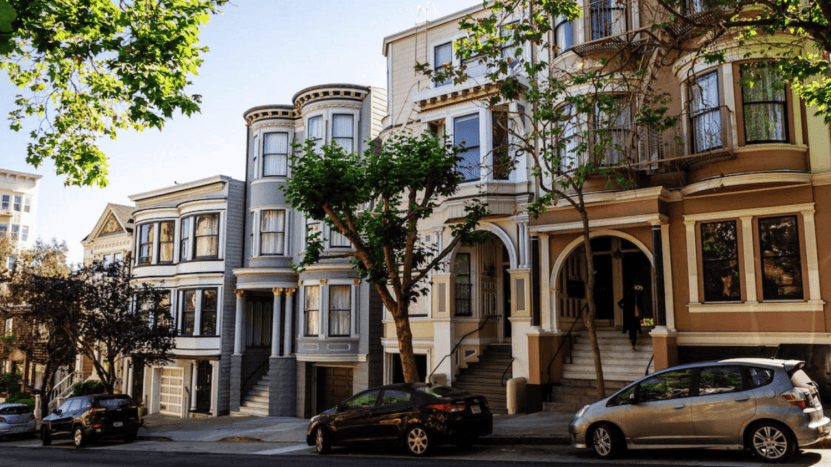Are you a homeowner in San Francisco or planning to buy a property soon? Understanding San Francisco property tax is crucial for your financial planning and property management. In this comprehensive guide, we delve into the basics and the specifics of property taxes in San Francisco, providing you with valuable insights and resources. With JVM Lending as your local Bay Area property expert, navigating through the property tax landscape becomes a breeze.
What are Property Taxes in San Francisco?
Property taxes are mandatory levies imposed on property owners by local government entities, usually counties or municipalities. These taxes constitute a significant revenue source for local governments, supporting crucial services like education, public safety, and infrastructure upkeep.
How is San Francisco Property Tax Calculated?
Getting a grasp on how property tax is calculated can be quite eye-opening. In San Francisco, the County Assessor determines the value of a property. The property’s assessed value is then multiplied by the San Francisco property tax rate to determine the amount of tax due.
In California, the base tax rate is 1% of the assessed value of your property, plus any voter-approved bonds and special assessments. Once all local adjustments are made, the effective property tax rate in San Francisco averages around 1.3% of your home’s purchase price.
When are San Francisco Property Taxes Due?
Remembering the due dates is essential to dodge late fees. In the County of San Francisco, property tax bills are due in two installments:
- The first installment is due on November 1st and is delinquent after December 10th.
- The second installment is due on February 1st and is delinquent after April 10th.
As the due dates approach, ensuring you have arrangements to pay your bill promptly is vital to avoid any penalties.
Can I Pay My San Francisco Property Tax Bill Online?
Yes, indeed! The City and County of San Francisco offer an online payment system allowing property owners to pay via credit card or other online payment methods. This convenient system ensures your property taxes in San Francisco are paid on time, steering clear of any unwarranted late fees or penalties.
View mortgage rates for
May 5, 2024
What are Supplemental Property Taxes?
Besides regular property taxes, homeowners in San Francisco may encounter supplemental property taxes. These are additional taxes levied when there’s a change in ownership or new construction, reflecting the difference between the previous and new assessed values of the property.
How are Supplemental Taxes Calculated in San Francisco?
When a property undergoes a reassessment due to a change in ownership or new construction, the County Assessor calculates the new assessed value. The difference between the old and new assessed values is used to calculate the supplemental tax, prorated based on the number of months remaining in the fiscal year from the date of ownership change or construction completion.
Frequently Asked Questions
What Happens if My San Francisco Property Tax Payment Is Late?
If property tax payments are not made by the delinquent dates, penalties are imposed by the Office of the Treasurer. It’s essential to be mindful of these dates and make your payments accordingly to avoid extra charges.
How Can I Check My San Francisco Property Tax Bill?
The County of San Francisco provides various resources for homeowners to review their property tax bills. You can access your bill online or contact the Treasurer Tax Collector’s Office directly.
Is There a Limit on How Much My San Francisco Property Taxes Can Increase?
Yes! In California, a law called Proposition 13 makes sure your property taxes can’t go up more than 2% each year.
Proposition 13, or Prop 13, is a California law from 1978 that shapes property taxes for all of California. It caps the basic property tax rate at 1% of the property’s purchase price or assessed value, plus any local taxes and assessments approved by voters.
The assessed value of your property, initially based on the purchase price, can only increase by a maximum of 2% per year, regardless of market value changes. However, significant events like a change in ownership or major construction can trigger a reassessment, setting a new base value for taxation.
Questions About Your San Francisco Property Taxes?
Whether you are curious about the San Francisco property tax rate, how property taxes are calculated, or how to pay your bill, JVM Lending is here to guide you. By understanding the intricacies of San Francisco property taxes and leveraging available online resources, homeowners can adeptly manage their property taxes and sidestep any unnecessary penalties.
Contact us at JVM Lending for more information on property taxes and let us be your go-to resource for all of your San Francisco real estate questions. Reach JVM Lending at (855) 855-4491 or email [email protected]. Your journey toward becoming a savvy property owner in San Francisco begins with us.
Please Note: The information provided in this blog post is intended for informational and educational purposes only. JVM Lending is not a tax professional or financial advisor. Property tax laws and regulations can be complex and may vary by location and individual circumstances. We strongly recommend consulting with certified tax professionals for personalized advice and guidance on property tax matters. If you’d like a referral to a tax professional or financial advisor, contact us and we’ll happily refer you to one of the trusted professionals in our network.
























